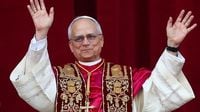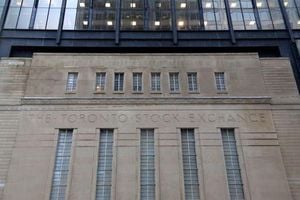On Thursday, May 8, 2025, the Vatican witnessed a historic moment as white smoke billowed from the Sistine Chapel, signaling the election of a new pope. Cardinal Robert Francis Prevost, hailing from Chicago, was revealed as the new pontiff and will be known as Pope Leo XIV. This marks a monumental occasion as he becomes the first American pope in history.
The announcement came shortly after the white smoke appeared at approximately 12:08 p.m. ET, followed by a jubilant cheer from the thousands gathered in St. Peter’s Square. The crowd erupted in applause, and the bells of St. Peter’s Basilica rang out to welcome the news, creating a scene of celebration and relief.
After more than an hour of anticipation, Pope Leo XIV stepped onto the balcony of St. Peter’s Basilica, addressing the eager crowd. “Peace be with you all,” he began, setting a tone of unity and hope. The 69-year-old pontiff, who spent much of his career as a missionary in South America and recently led a Vatican office for bishop appointments, expressed his commitment to continuing the reforms initiated by his predecessor, Pope Francis.
“Let us keep in our ears the weak voice of Pope Francis that blesses Rome,” Leo XIV stated, emphasizing the importance of maintaining the spirit of his predecessor. He called for the Catholic Church to be a “synodal” church, one that seeks peace and stands close to those who suffer. His address resonated with themes of love and charity, urging the faithful to engage in dialogue and support one another.
The papal conclave, attended by 133 cardinals, began on Wednesday, May 7, 2025. This conclave was particularly notable for its diversity, with many cardinals appointed by Pope Francis himself. Of the voting cardinals, 108 were installed by the late pope, who passed away at the age of 88 last month. His funeral drew over 250,000 mourners, including heads of state and royalty, reflecting the profound impact he had on the global Catholic community.
During the conclave, the Sistine Chapel was placed under total lockdown to ensure secrecy, with measures in place to prevent any communication with the outside world. The cardinals took an oath of secrecy before the voting began, which was conducted in a traditional manner, requiring a two-thirds majority for election. Each ballot cast was followed by the burning of the papers, with black smoke indicating no pope had been chosen and white smoke confirming a new pontiff.
As the news spread of Cardinal Prevost’s election, reactions poured in from across the media landscape. Erin Burnett from CNN described the moment as “stunning,” noting the significance of having an American pope. Maurice DuBois of CBS News echoed this sentiment, stating they were “totally shocked” by the outcome. The coverage highlighted the unexpected nature of the election, as many had anticipated a different choice, possibly an Italian candidate.
In a moment that transcended faith, Cardinal Dominique François Joseph Mamberti announced, “Habemus papam,” which translates to “We have a pope.” This phrase, steeped in tradition, signified not just the election of a new leader but also a moment of joy and unity among Catholics worldwide. The event showcased a rare convergence of hope and celebration in a time often marked by division.
Reflecting on the election, Tony Dokoupil of CBS News noted the sense of unity surrounding the event. “Nowhere else on Earth, at no other time can you stand someplace where everybody around you is one,” he remarked, emphasizing the collective joy shared by the crowd. This moment of convergence offered a brief respite from the political polarization that has characterized much of recent history.
Pope Leo XIV’s election is not just a milestone for the Catholic Church but also for the city of Chicago, which celebrated having a native son take on such a significant role. His name, Leo, carries historical weight, evoking Pope Leo XIII, who championed social justice and workers’ rights. This connection has led many to speculate about the new pope’s focus on social issues and his approach to leadership.
As the new pontiff addressed the crowd in both Italian and Spanish, he honored his roots and remembered Pope Francis, emphasizing a commitment to peace. His vision for the Church is one of dialogue, charity, and outreach, as he called for a church that builds bridges and engages with the world.
Looking ahead, pundits are eager to see how Pope Leo XIV will navigate the complexities of his role. Linsey Davis from ABC News remarked that the election appears to be a continuation of Pope Francis’ legacy rather than a complete departure. John Allen, editor of the papal news site Crux, described the new pope as a centrist, suggesting that he may strive for balance, potentially frustrating both conservatives and liberals alike.
As the world reflects on this historic election, one thing is clear: the election of Pope Leo XIV is a moment of joy that resonates beyond the confines of the Vatican. It serves as a reminder of the power of hope and unity, even in the face of uncertainty. With his call for peace and dialogue, Pope Leo XIV is poised to lead the Catholic Church into a new era, building on the foundations laid by his predecessor while navigating the challenges that lie ahead.




